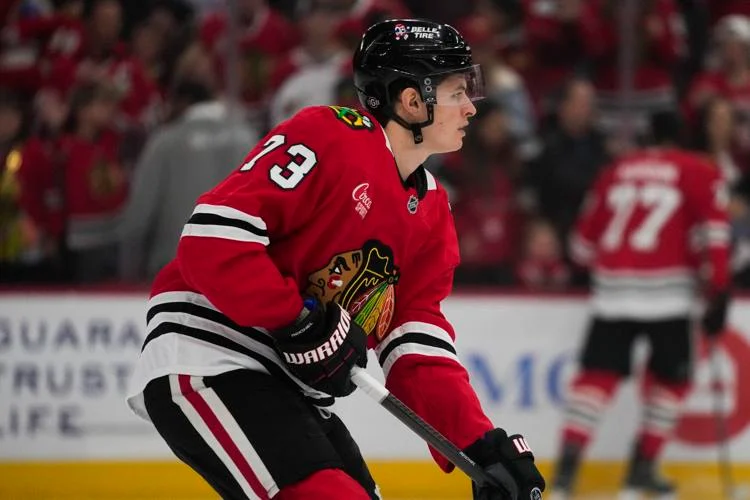The Chicago Blackhawks have long been one of the most storied franchises in the National Hockey League (NHL). Their history is rich with triumphs, disappointments, and an unwavering connection to the passionate fan base that supports them. One of the key elements contributing to this intricate tapestry is their rivalries. Rivalries in sports can evoke a multitude of emotions, ranging from exhilaration to animosity, creating an atmosphere that transforms games into events. Exploring the impact of rivalries on the Chicago Blackhawks provides insight not only into the psychology of sports but also how these relationships shape the team’s identity, legacy, and influence on the community.
The fierce competition against other teams has often defined the essence of the Chicago Blackhawks organization. The emotion surrounding these rivalries influences players, fans, and the city itself. As we delve deeper into the impact of these rivalries, we will examine various aspects such as historical context, player relationships, fan engagement, and the overall significance to the team’s success.
Historical Context of Chicago Blackhawks’ Rivalries
Understanding the rivalries of the Chicago Blackhawks requires looking back at their historical context. Throughout the years, the franchise has faced numerous formidable opponents, each rivalry telling a story filled with passion and drama.
>>> Buy now: Chicago Blackhawks Logo With Skull Pattern Bomber Jacket- Red/Black
Emergence of Key Rivalries
The origins of rivalries for the Chicago Blackhawks can be traced back to their inception in 1926. Over the decades, certain opposing teams emerged not just as competitors but as archrivals. The most notable among these include the Detroit Red Wings, St. Louis Blues, and more recently, the Nashville Predators.
These rivalries are rooted in geographic proximity and playoff encounters, both of which breed intense competition. For instance, the rivalry with the Detroit Red Wings is famously known as the “Original Six” rivalry, encapsulating a historic chapter in NHL lore. The geographical closeness and frequent matchups created an atmosphere where every game felt like a battle for supremacy. The emotional stakes escalated significantly during playoff series, making these contests even more memorable.
Evolution Over Decades
As time moved forward, the nature of these rivalries evolved. The rise of free agency introduced new dynamics to team rosters, meaning that players who once played for one team could easily become rivals after switching sides. This fluidity added layers to the Blackhawks’ rivalries, as current players often had personal histories or connections to former or current players on opposing teams. The psychological warfare on the ice was enhanced by players’ backgrounds, intensifying the competitive spirit.
In addition to changes in player personnel, shifts in league structure, such as the introduction of conference systems, have altered the landscape of rivalries. Teams like the Nashville Predators have entered the fray, creating new narratives and challenges for the Blackhawks. Each era produces its unique flavor of rivalry characterized by memorable moments, thrilling matches, and legendary player performances – all of which add to the rich history of the Chicago Blackhawks.
The Role of Historic Games
Historic games play a pivotal role in cementing the rivalries that define the Chicago Blackhawks. Iconic matchups, such as Game 7 of the 2013 Stanley Cup Playoffs against the Detroit Red Wings, not only highlight the intensity of competition but also leave lasting impressions on fans. These moments are woven into the fabric of the franchise’s identity, giving rise to tales that are retold by future generations of fans and players alike.
Furthermore, the emotional highs and lows associated with these historic encounters create a sense of camaraderie among fans. The shared experience of witnessing a nail-biting overtime victory or a heart-wrenching defeat fosters a bond that transcends individual preferences. Such memories serve as powerful reminders of what it means to support a team through thick and thin – an aspect that cannot be underestimated when analyzing rivalries.
Player Relationships Within Rivalries
One of the most compelling aspects of the Chicago Blackhawks‘ rivalries is the intricate relationships formed between players. These relationships can range from friendships built off the ice to intense rivalries that manifest during games.
Friendships Off the Ice
While rivalries often bring about hostility during games, many players develop friendships outside of competition. The nature of professional hockey brings athletes together on various platforms, including All-Star games, charity events, and summer training camps.
For instance, players like Patrick Kane and Jonathan Toews have forged bonds with individuals from opposing teams over the years. These friendships can complicate the notion of rivalry, as athletes must switch between camaraderie and competitiveness. Such dynamics are essential in humanizing the very concept of rivalries; they remind us that athletes are individuals with lives beyond the rink.
On-Ice Animosity
Contrastingly, the on-ice relationships between players can be marked by fierce competition and rivalry. When the Chicago Blackhawks face off against teams like the St. Louis Blues, the physicality and aggression increase exponentially. Players engage in heated exchanges, body checks, and trash talk, adding layers of intensity to the gameplay.
This animosity often stems from previous encounters where tension has built up over time. Players carry with them the weight of past skirmishes, leading to heightened emotions. The rivalry becomes personal, as players seek to prove themselves against their adversaries. An example can be seen in the notorious hits exchanged between players from the Blackhawks and Blues, showcasing how rivalries translate into aggressive play.
Legacy of Player Rivalries
The legacies players leave behind in rivalries significantly influence the Chicago Blackhawks‘ culture. Icons like Tony Esposito and Chris Chelios shaped the course of their team through electrifying performances against rivals. Their contributions during critical moments of rivalry games become part of lore, fueling future generations of players and fans.
Additionally, these player rivalries often serve as motivation for young athletes aspiring to reach the professional level. Young hockey players study the moves, strategies, and tenacity exhibited by players during rivalries, inspiring them to emulate the same relentless spirit. This cyclical nature of rivalry and player development contributes to the ongoing narrative of the Blackhawks, ensuring that the flames of rivalry continue to burn brightly.
Fan Engagement and Rivalries
No discussion on the impact of the Chicago Blackhawks‘ rivalries would be complete without considering the fans. Their passionate investment in the team creates an electric atmosphere during games, particularly against rival teams.
The Role of Fan Culture
The culture surrounding Blackhawks fandom is deeply intertwined with the team’s rivalries. Fans dedicate hours to supporting their team, whether attending games at the United Center or tuning in from home. For many, being a Blackhawks fan is not merely a hobby but a way of life.
Rivalry games amplify this fan engagement. The anticipation leading up to a matchup against a rival team fuels excitement and discussions amongst fans. Social media platforms buzz with predictions, memes, and spirited debates, as fans rally behind their team. The vibrant community of supporters turns these matchups into social events, filled with tailgating, watch parties, and gatherings where stories of past rivalries are shared.
Game Day Atmosphere
On game days, especially during rivalry matchups, the atmosphere in the stands reaches a fever pitch. Fans don their jerseys, wave banners, and chant slogans, creating a visual and auditory spectacle that brings the arena to life. The energy is palpable as chants echo throughout the venue, uniting fans in their shared passions.
Home ice advantage plays a significant role here, as the boisterous crowd becomes an additional force against opposing teams. The intimidation factor increases dramatically when opposing players enter a raucous United Center, influencing how they perform under pressure. The collective enthusiasm of Blackhawks fans not only motivates their team but demonstrates the vital role that fan engagement plays in shaping the identity of the rivalries.
Rivalries as Community Events
Rivalries extend beyond the ice and into the city of Chicago itself, serving as community events that foster unity among fans. Local establishments often host viewing parties, drawing in fans who may not be able to attend games. These gatherings create communal experiences that further solidify the bonds among supporters.
Moreover, the emotional highs and lows of rivalry games become talking points within communities. Whether celebrating a hard-fought victory or lamenting a crushing defeat, shared experiences build connections among residents. The Chicago Blackhawks’ rivalries thus transcend sports; they reflect the character of the city, bringing people together in a celebration of their love for hockey.
The Broader Implications of Rivalries
The impact of the Chicago Blackhawks‘ rivalries goes far beyond wins and losses. It intersects with themes of identity, city pride, and the very essence of sportsmanship.
Identity and Legacy
The identity of the Blackhawks is inherently tied to their rivalries. Generations of fans have woven these narratives into the fabric of the franchise, defining what it means to be a supporter. The legacy left by rivalry games influences how players and fans perceive their roles within the larger community.
When thinking about rivalries, it’s essential to consider the lessons they impart. Sportsmanship, respect, and determination are exemplified during these encounters. They teach that while competition can ignite tensions, it can also lead to remarkable displays of skill and resilience. Rivalries instill values that resonate beyond the rink, shaping character and fostering a sense of belonging.
City Pride and Hockey Culture
The Chicago Blackhawks embody the pride of the Windy City. Their rivalries often reflect the broader cultural and economic dynamics of Chicago. For instance, the fierce competition against the St. Louis Blues captures the essence of Midwestern grit and determination.
Rivalries contribute to the larger narrative of hockey culture within Chicago. Strong ties to the community are evident, with local youth leagues and programs inspired by the passionate engagement of fans. As children grow up watching Blackhawks games and witnessing the fervent rivalries, they become interested in the sport, ensuring its legacy continues.
The Evolution of Rivalries in Modern Sports
In today’s digital age, the nature of rivalries is evolving. Social media has transformed how fans engage with their teams and interact with rival supporters. Trash-talking, banter, and playful jabs have transitioned from the stands to online platforms, creating an expansive dialogue concerning rivalries.
As a result, the intensity of rivalries has expanded, reaching global audiences. The Chicago Blackhawks’ clashes with rivals are no longer confined to the local fanbase; they attract attention from hockey enthusiasts worldwide. This evolution showcases how technology amplifies the significance of rivalries, allowing them to thrive in modern sports culture.
In examining the impact of the Chicago Blackhawks‘ rivalries, it becomes evident that they encompass far more than just competition on the ice. These rivalries pulsate with history, personal relationships, fan engagement, and cultural significance. Each element intertwines to create a rich tapestry that defines the franchise and its legacy in the world of hockey.
>>> Read more:
From the historic roots of their rivalries to the emotional highs and lows experienced by fans, the Blackhawks epitomize the complexity of sports in shaping identity and community. Rivalries stand as a testament to dedication, passion, and the love of the game, reminding us why we cheer for our teams through every victory and defeat. In essence, the rivalries of the Chicago Blackhawks serve as a microcosm of the beautiful chaos that sports represent, enriching the lives of those who partake in it.




